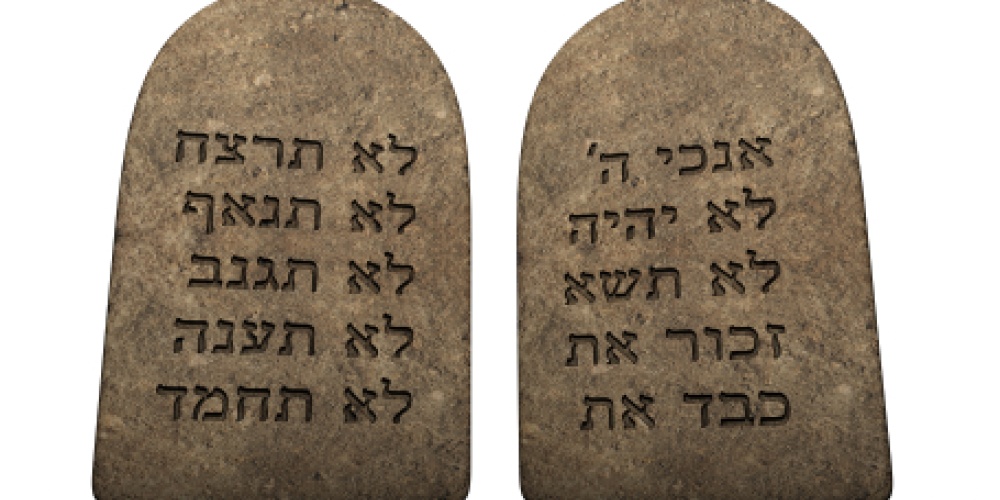"The Holy One blessed be He looked into Torah and created the world" (Breisheet Rabba 1:2). Our Sages viewed the Torah as the architectural blueprint for the world, predating creation and serving as the very basis for that creation. The Sages wanted to emphasize that the Divinely ordained ethic is the most natural of lifestyles.
It is with this mindset that we must understand the teaching of Rav, the founder of the great Yeshiva in Sura, that "Avraham Avinu observed the entire Torah" (Yoma 28b). If Torah is the blueprint of the world, then our founding fathers surely must have observed such. Of course, like many Midrashic teachings, these are to be understood metaphorically; the Torah itself is replete with examples of our Avot "violating" what would later become part of Torah, not to mention the historical anachronism of the Avot keeping Torah.
Even--or, shall we say, especially--such statements that the angels visited Abraham (and Lot) on Pesach are to be understood metaphorically (see here). The Avot may have kept much of the Torah, as they had an intuitive sense of right and wrong, and acted in ways that would later be codified into Torah law.
With their dramatic style, the rabbis make their teachings sound so real that some fail to see beyond the vivid metaphors. Rav actually links his teaching to a Biblical verse: "because Abraham listened to My voice and obeyed My charge, My mitzvoth, My decrees, and My laws" (Breisheet 26:5). In a technique known as asmachta, the rabbis link an idea to a Biblical verse, which gives it much weight; but such does not represent the actual meaning of the verse itself[1].
To further emphasize Abraham's dedication to Torah, Rav's teaching concludes by telling us that Abraham "even kept eiruv tavshilin". The significance of the choice of eiruv tavshilin is not explained, and Tosafot Yeshaneem simply states: "I do not know why this mitzvah was chosen".
Rabbinic law forbids cooking on Yom Tov for Shabbat, unless once begins the cooking process before Yom Tov begins. The Rabbis were afraid that, with many elaborate Yom Tov meals coming, one might neglect to think about Shabbat meals. Hence, in order to maintain the proper respect for Shabbat, they ruled that one must begin cooking for Shabbat beforehand (see Beitzah 15b).
The Maharitz Chayot (an eclectic 19th-century Galician scholar) quotes two alternate readings: it was not eiruv tavshilin that Abraham observed, but rather eiruv chatzerot or eiruv techumim that Abraham kept, just sharpening the question of what is so special about aneiruv.
An eiruv techumim allows one to walk an additional 2,000 cubits on Shabbat in a given direction. The opening word of the verse from which Rav "derives" the fact that Abraham kept the Torah is eikev, literally meaning "a heel" (but in context meaning "because"), which implies walking; hence, the reference to eiruv techumim. As in the case of eiruv tavshilin, it is unclear why Rav singles out an eiruv chatzerot--which is the technical name for what we call an eiruv--allowing one to carry from one domain to another on Shabbat.
On a most basic level, Rav is teaching that Abraham observed (intuited) even rabbinic laws, laws that would take thousands of years to come into being. However, this does not explain why the example of an eiruv is used.
An eiruv joins things together, unifying them into one. Whether it be Yom Tov and Shabbat (or the weekday and Yom Tov), one city to the next, or one's home to that of his neighbor, it is a unifier. The pagan world from which Abraham came believed in many gods, each with its own sphere of influence and each competing with each other for greater power. Abraham (re)introduced the concept of monotheism into the world, where all of existence is a unified whole under the domain of the One and only G-d.
All three of the eiruvim are made with food. We begin cooking before Yom Tov to establish an eiruv tavshilin; an eiruv chatzerot is established by each of the people in a courtyard putting some food into one of the households of that courtyard; and we leave food at the midpoint of the distance that we want to walk on Shabbat to establish an eiruv techumim. It is food that joins people together[2], and Abraham introduced the concept of One G-d to others through inviting them to his home and feeding them (Breisheet 54:6).
Before the Torah was even given, Abraham understood that we must make eiruvin--we must bring people and communities together, joining the parts into a greater whole. The more we join together, the further we can spread the Divine presence throughout the world.
[1] The Rashbam, the pashtan (elucidating the "plain" meaning of the text) par excellence, explains that the verse is referring to those mitzvoth that had been commanded to Abraham, such as brit milahand the akeidah.
[2] This explains why our rabbis forbade, for example, the consumption of wine made by a non-Jew--fearing that drinking together may lead to intermarriage. Interestingly, the Meshech Chochmah (Vayikra 23:21) explains that permission to cook on Yom Tov derives from the fact that the Yamim Tovim celebrate great moments in Jewish history. As a means of uniting the people, we were allowed to cook freshly made food, as there is nothing like food to cement a friendship.

